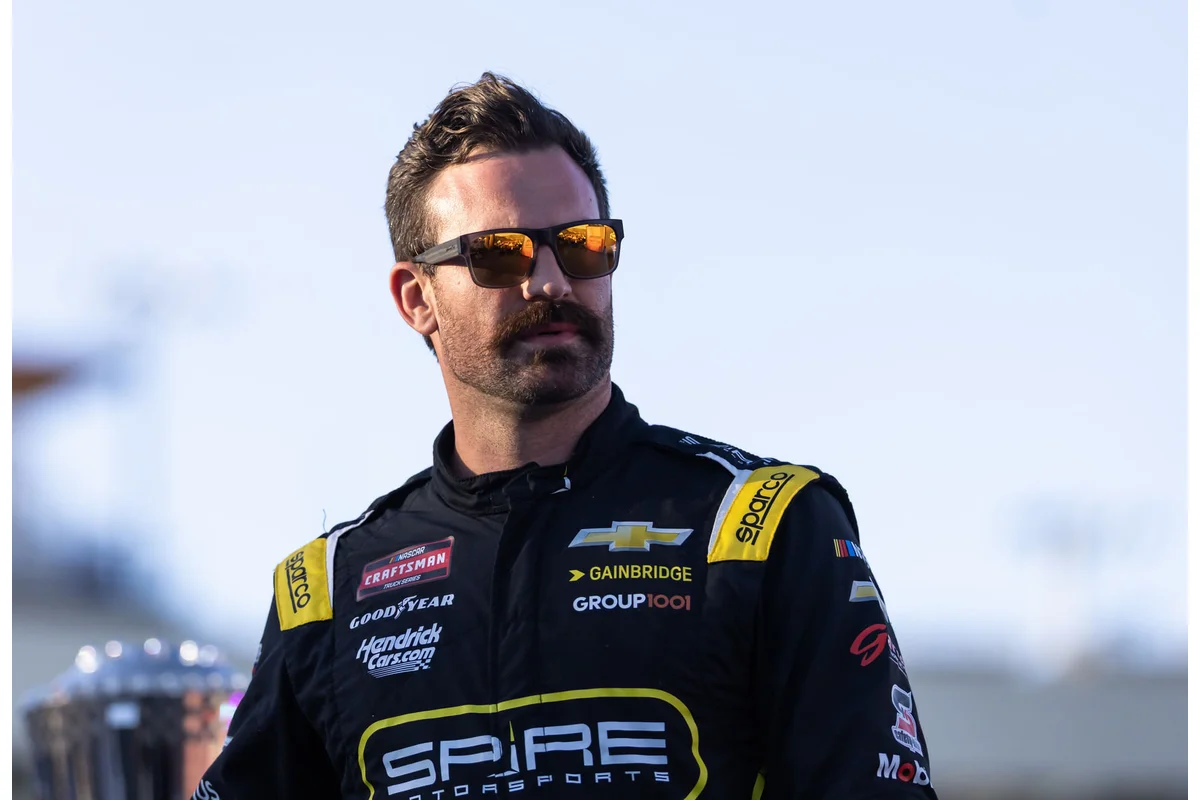Corey LaJoie, a NASCAR driver and analyst, delivered a blunt assessment on the public’s response to chevrolet/”>Chevrolet’s updated Camaro ZL1 body for the upcoming Cup Season, raising concerns about the widespread optimism among fans. His direct reaction, which spotlights the Corey LaJoie NASCAR reaction, came as many enthusiasts expressed disappointment following Chevrolet’s decision to proceed with modified versions of the Camaro, rather than a completely new model.
Chevrolet’s 2026 Camaro Body Fails to Impress NASCAR Community
When Chevrolet announced it would continue using the Camaro with only slight modifications for upcoming races, the news drew backlash from the NASCAR fanbase. Many supporters, still celebrating Chevrolet’s 34th NASCAR driver’s championship this season, had expected a debut of a new production car for the 2026 Cup schedule. Instead, they were presented with marginally altered features on the existing Camaro body.
The new race car incorporates notable changes like a larger hood dome, a redesigned grille, and improved rocker panels sourced from Chevrolet’s Carbon Performance Package. Despite these adjustments, numerous fans perceived these updates as insufficient given the recent end of Camaro production in 2024. Their frustrations poured onto social media, with some feeling the manufacturer had simply introduced a performance package instead of developing a new vehicle.
“Honestly, what did people expect? They know the body performs well and resembles tens of thousands Camaros on the road. So they tweak it to find some front DF, knock some drag out and get a couple counts of side force then ship it. There’s a lot of unrealistic hopes and dreams on X,” Corey LaJoie wrote.
This sentiment was echoed by other community members on social platforms, who called out Chevrolet’s approach. One fan commented,
“So did Chevy just drop a random performance package for it’s discontinued Camaros to avoid having to design an entirely new car lmao.”
Another shared their skepticism, writing,
“If they don’t sell the car to the public it shouldn’t be on the track,”
highlighting a growing disconnect between manufacturer decisions and fan expectations. Some remained puzzled by the update, with one user remarking,
“Surely there’s at least some aerodynamic advantage to this facelift. Otherwise I am confused.”
Chevrolet, a key division of General Motors, has not provided any timeline for when a newly developed model might participate in future NASCAR events. The decision to update rather than revolutionize its racing vehicle has become a flashpoint, drawing commentary from both drivers and observers alike.
LaJoie Opens Up About Frustrations in the Truck Series
Beyond his frank comments surrounding the Camaro ZL1, Corey LaJoie recently reflected on his own racing career, sharing his dissatisfaction with experiences in the NASCAR Truck Series. Speaking candidly during a September episode of his Stacking Pennies Podcast, he described the limitations he faced, particularly those imposed by manufacturer restrictions and the inability to innovate or redesign his truck’s body during competition.
“Trucks aren’t particularly fun to drive, and also like smashing my head up against the wall, metaphorically. Like, you’re fighting a battle that is just, if you’re not doing it yourself, you deal with all the bullsh*t. We can’t do a new body build. Well, we can’t build it this way because GM this, and simulation that,” Corey LaJoie said.
LaJoie, a 33-year-old analyst and commentator for NASCAR on Prime Video, indicated he would only consider returning to the broadcast booth or racing full-time should a favorable opportunity arise. After losing his Cup seat in 2024, he also signaled he might pursue a run in major events such as the Daytona 500 in the future.
The Implications for NASCAR’s Future
The intense reactions from both Corey LaJoie and the public illustrate mounting tension between long-time NASCAR fans, manufacturers like Chevrolet and General Motors, and the broader direction of the sport. As the industry moves toward another pivotal season, debates over vehicle development and transparency are likely to persist. With drivers and analysts critiquing decisions, and fan discontent simmering, NASCAR faces increasing pressure to deliver changes that reflect both competitive integrity and public demand.
Honestly, what did people expect? They know the body performs well and resembles tens of thousands Camaros on the road. So they tweak it to find some front DF, knock some drag out and get a couple counts of side force then ship it. There’s a lot of unrealistic hopes and dreams on…
— Corey LaJoie (@CoreyLaJoie) November 14, 2025
So did Chevy just drop a random performance package for it’s discontinued Camaros to avoid having to design an entirely new car lmao
— Dylan (@Dylannascar5) November 14, 2025
Is… Shit. @NASCAR
If they don’t sell the car to the public it shouldn’t be on the track.
— Chris George (@ChrisGe90850891) November 14, 2025
Surely there’s at least some aerodynamic advantage to this facelift. Otherwise I am confused
— Noah McFadden (@noah_mcfadden) November 14, 2025
